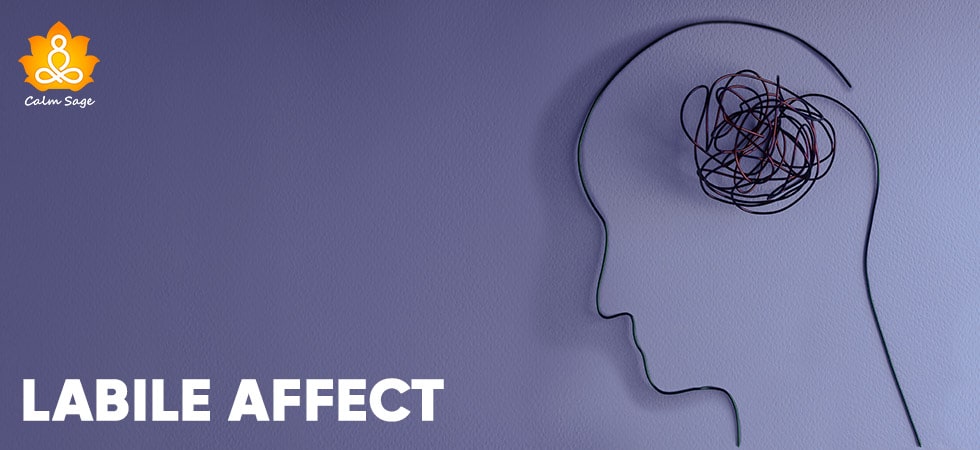What Are The Signs Of Emotional Invalidation & How To Deal With Invalidation

We all know the importance of emotions and how they help influence our decisions. But what about emotional invalidation? What can we do when our emotions are not validated by others or even us in some situations?
Validations means accepting one’s thoughts, emotions and feelings. Invalidation is just the opposite of it – meaning, feelings, thoughts and emotions are either rejected, ignored, or judged.
In this article, I’m going to be talking about what is emotional invalidation, the signs of emotional invalidation, and how you can deal with invalidation.
Please keep in mind that invalidation can happen at any stage of life and can often lead to feelings of worthlessness, isolation, social withdrawal, depression, and other mental health concerns. To prevent these issues from manifesting, understanding emotional invalidation is imperative.
Signs Of Emotional Invalidation
Our parents, guardians, loved ones are the people we look to for guidance when we need it. They are the first ones we look to when we need help understanding things. But what happens when our emotions, thoughts, and feelings are invalidated and dismissed by them?
And how do we know our emotions are being invalidated?
Here are some signs of emotional invalidation you must keep in mind:
1. You Were “Too Emotional”
“You’re too sensitive” or “You’re overreacting” or “You’re too emotional” – heard these before? If you’ve heard these phrases often growing up, it means that your emotions are not being taken seriously. Being emotional or being sensitive is okay and nothing to be ashamed of. Being constantly told that your emotions are too much, is a sign of emotional invalidation.
2. You Apologize Constantly
Do you constantly apologize for things that weren’t your fault? It can be a big sign of emotional invalidation. This need to say sorry comes from the need to please others. Over-apologizing even for the smallest thing or voicing your concern can be a form of emotional invalidation.
3. You Felt Unseen/Unheard
Emotional invalidation is not only telling you that what you’re feeling is wrong or dismissing emotions as nothing important. Emotional invalidation can be feeling unseen or unheard by others. When your voice is unheard, you feel invisible – it can be a sign that you’re being emotionally invalidated.
4. Your Feelings Were Either Right Or Wrong
If you’ve grown up being told that there are either right emotions or wrong emotions, you start to question yourself and your feelings. It’s okay to get angry, it’s okay to feel sad. There are no right or wrong emotions. As an adult, this can make it difficult for you to open up to others.
5. You Struggle With Your Emotions
Feeling no emotions at all or feeling emotionally numb are also signs of emotional invalidation. When you’re constantly told that what you’re feeling is wrong or when your emotions are constantly judged, you start to numb yourself into feeling emotions. It can be harmful to your emotional health.
6. Your Struggles Were Never Accepted
No matter how many times you try to explain your struggles to your loved ones, you’re always told, “This is in your head”, “Get over it, it’s not real”. If you’ve heard these phrases in your life regarding your emotions and feelings, it is a sign of emotional invalidation.
7. You Second Guess Yourself
Growing up with emotional invalidation, you’ve learned to second guess yourself. You feel as if you never do things the right way. Emotions are what drives us to do things – right or wrong. But if you’re constantly second-guessing what you know is the right thing, it can be a sign that you’re being emotionally invalidated.
8. You’re Surprised By Others’ Kindness
When you grow up with emotional invalidation, you are constantly surprised by kind gestures from strangers. When you hear no judgment, no dismissal of your concerns, you’re left feeling astonished. This is a sign of emotional invalidation.
Effects Of Emotional Invalidation On Mental Health
Emotional invalidation can cause you to develop issues such as:
-
- Distrust In Your Emotions: When your emotions are not validated, you grow up thinking what you’re feeling is somehow wrong. It can lead to confusion, self-doubt, or distrust in your personal experiences.
- Low Self-Esteem: Emotional invalidation leads people to hide their true feelings. This, eventually, can cause a person to develop low self-esteem and confidence in themselves.
-
- Other Mental Health Concerns: As I said before, emotional invalidation can lead a person to develop issues such as depression, social isolation, anxiety, borderline personality disorder, eating disorders, increased risk of self-harm, and other issues.
Dealing With Emotional Invalidation
Now that you know what is emotional invalidation, here’s what you need to know on how to deal with invalidation:
1. Acknowledge The Emotion
The first thing you need to do is to accept and acknowledge the emotion you’re feeling. If you’re angry or if someone you love is angry, acknowledge it; say “I understand you’re angry” or “I am feeling anger”. Once you accept your emotions, the next step is to identify the why.
2. Identify The Source
The second step is to ask yourself why? Why are you angry? What is making you angry? Who is making you angry? Find the source of your emotion. Once you’ve locked on the source, you can take effective measures to control your emotion, the situation, person, or place that’s causing you to feel angry.
3. Say ‘Yes’ To The Emotion
The final step is to validate your emotion. Instead of saying statements such as “You’ll get over it” say “I worried about you. How can I help?” Even if you have to say this to yourself – do it. Validating your emotions even if they are negative is good. Knowing your emotions can help you change them if needed.
Final Words
If someone you love is experiencing emotional invalidation, make sure you do what you can to let them know that their emotions -whatever they are are valid and accepted. One thing to keep in mind is that don’t get defensive or offer unsolicited advice. You need to show respect to others’ emotions.
If you’re having difficulty acknowledging your emotions, you can ask a counselor to help you. Seeking professional help when it comes to emotional or mental health is okay! Emotional invalidation is not okay and I hope by learning these signs of emotional invalidation, you can learn to deal with invalidation and improve your emotional health.
Don’t let anyone invalidate your feelings! Your feelings, your emotions are valid!
For more, you can write to us at info@calmsage.com or follow us on social media. Like this blog? Let us know in the comments below!
Take Care!






















